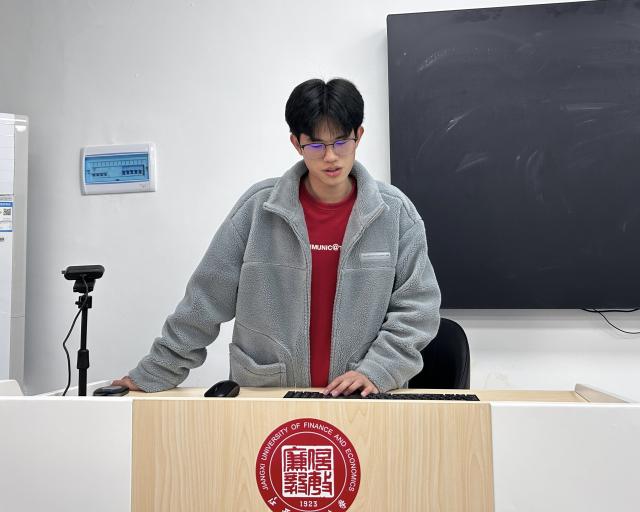On the afternoon of November 27th, our institution conducted the fifth literature sharing session for the 2023-2024 academic year in Room Y301 of the Graduate Building. Teacher Wu Long from our institution was invited to attend the seminar. The session was presided over by student Yu Jing, and all first-year students majoring in Industrial Economics participated in the sharing session. There was active interaction between teachers and students during the session, creating a vibrant academic atmosphere.

The first student to present a literature review was Huang Jiawei. He shared a paper from the "Economic Research" journal's March 2023 issue titled "Digital Technology Innovation and the High-Quality Development of Chinese Enterprises—Evidence from Digital Patents of Enterprises." The paper employed text analysis to identify digital patents of enterprises to depict the level of digital technology innovation. It then examined the economic consequences of digital technology innovation from the perspective of overall factor productivity. The results showed that digital technology innovation enhances the overall factor productivity of enterprises, driving the high-quality development of Chinese enterprises. The external environment of digital technology innovation, as well as internal conditions within enterprises, contributes to increasing the positive impact of digital technology innovation on overall factor productivity. Additionally, digital technology innovation at the grassroots level and practical application has a positive effect on overall factor productivity.

The second student presenting literature was Tan Lei. He shared a paper from the "Journal of Development Economics" titled "Across a Few Prohibitive Miles: The Impact of the Anti-Poverty Relocation Program in China." The paper investigated China's "Anti-Poverty Relocation Program," considering the migration of villages from the agricultural sector to the non-agricultural sector initiated by the program. The study found that this program led to a significant 9.61% increase in the income of participants, primarily driven by an increase in wage income. The empirical results were consistent with the viewpoint of the Roy model, indicating that rural households with a comparative advantage in the non-agricultural sector benefit from relocating to nearby towns. This research provided new evidence suggesting the existence of barriers to cross-industry mobility even within small geographic areas in rural regions. Cost-benefit analysis results indicated that relocating families from remote rural areas is a feasible policy tool to overcome such mobility barriers.

The third student presenting literature was Jiang Qidian. He shared a paper from the "China Industrial Economics" journal's August 2023 issue titled "Optimal Technology Selection Strategy of State-Owned Enterprises under Transnational R&D." The paper constructed an international mixed oligopoly competition model and examined the optimal technology selection strategy for state-owned enterprises (SOEs) under simultaneous domestic and foreign technology transaction channels. The research found that the optimal technology localization ratio of SOEs increases with the improvement of patent value. Deviating from the optimal technology selection strategy, SOEs adopting advanced technology may reduce overall social benefits. Furthermore, the article, through static analysis, suggested that when the patent value is sufficiently high, encouraging competition among transnational R&D enterprises in the product market and promoting deep cooperation among them in the technology transaction channel can accelerate SOEs' complete localization of selected technologies, enhancing overall innovation motivation and efficiency.

After each student's presentation, Teacher Wu Long engaged in questioning, discussion, and exchange with each student, providing valuable advice based on the students' reports and their individual circumstances.


